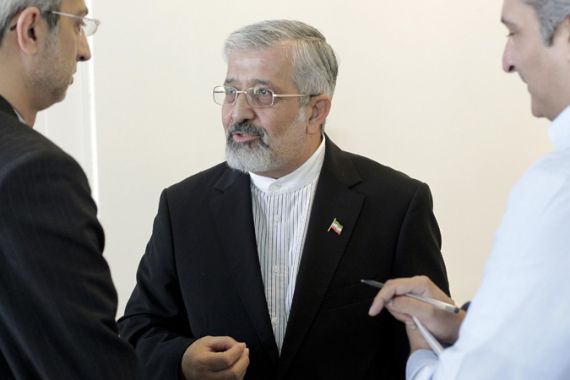UN nuclear agency board rebukes Iran
IAEA’s 35-nation board of governors expressed “serious concern” over Tehran’s refusal to suspend uranium enrichment.

The UN atomic agency’s board has rebuked Iran for failing to stop atomic activity.
The board of the International Atomic Energy Agency (IAEA) approved by an overwhelming majority a resolution criticising Iran brought by world powers that was also aimed at dissuading Israel from military action.
The resolution, passed on Thursday, expressed “serious concern that Iran continues to defy” UN Security Council resolutions for it to suspend uranium enrichment, a process which can be used for peaceful purposes but also in a nuclear weapon.
It also highlights the IAEA’s complaint that activities at the Parchin base near Tehran, where it suspects nuclear weapons research took place, would “significantly hamper” inspectors – should Iran let them visit.
The resolution was introduced at the meeting of the IAEA’s 35-nation board of governors on Wednesday after days of negotiating between Western nations and Russia and China, which are seen as more lenient on Tehran.
It was approved by 31 countries, with Cuba voting against and Egypt, Ecuador and Tunisia abstaining, all four of them members of the Non-Aligned Movement of which Iran is currently the rotating president.
Iran insists its expanding atomic programme is for peaceful purposes, but since the IAEA says repeatedly that it is unable to vouch for this, the UN Security Council has passed six resolutions against Tehran, four with sanctions attached.
The US and the European Union have also imposed additional unilateral sanctions that have hit Iran’s vital oil exports hard, and EU foreign ministers said last weekend they are considering additional measures.
“Iran wishes to be treated like a regular member of the IAEA and enjoy the benefits of peaceful uses of nuclear energy,” US envoy to the IAEA Robert Wood told the closed-door gathering.
“Yet unlike the vast majority of its members, it utterly refuses to act like a responsible member by not complying with the agreements and obligations which it freely accepted and which condition its ‘nuclear rights’.”
He accused Iran of “systematically demolishing the facility that has been identified by the IAEA as meriting inspection at the Parchin site”.
Iran has repeatedly denied demolishing the facility.
Israeli frustration
The IAEA resolution, the 12th in nine years, stops short of a referral of Iran to the Security Council, but it was significant that Western nations were able to get Moscow and Beijing on board, and at a time of heightened speculation that Israel, the Middle East’s sole if undeclared nuclear-armed state, might bomb Iran, analysts say.
Israeli disappointment has grown at what it sees as a failure by the international community to take seriously the threat posed by Iran or to stop it inching ever closer to “break-out capacity.”
In particular, Israeli Prime Minister Binyamin Netanyahu has been pressing US President Barack Obama to identify “red lines” for when it would take action.
Obama, running for re-election in November and keen to avoid being depicted as soft on Iran by Republican challenger Mitt Romney, spoke to Netanyahu for an hour by phone earlier this week.
Netanyahu’s deputy for intelligence and atomic affairs on Thursday broke with the prime minister’s call for Iran to be confronted with a “red line” beyond which its disputed nuclear programme would face military attack.
In a broadcast interview, Deputy Prime Minister Dan Meridor appeared to side with the US in balking at Netanyahu’s repeated demand that it set Iran an ultimatum or risk seeing Israel launch region-rattling unilateral strikes.